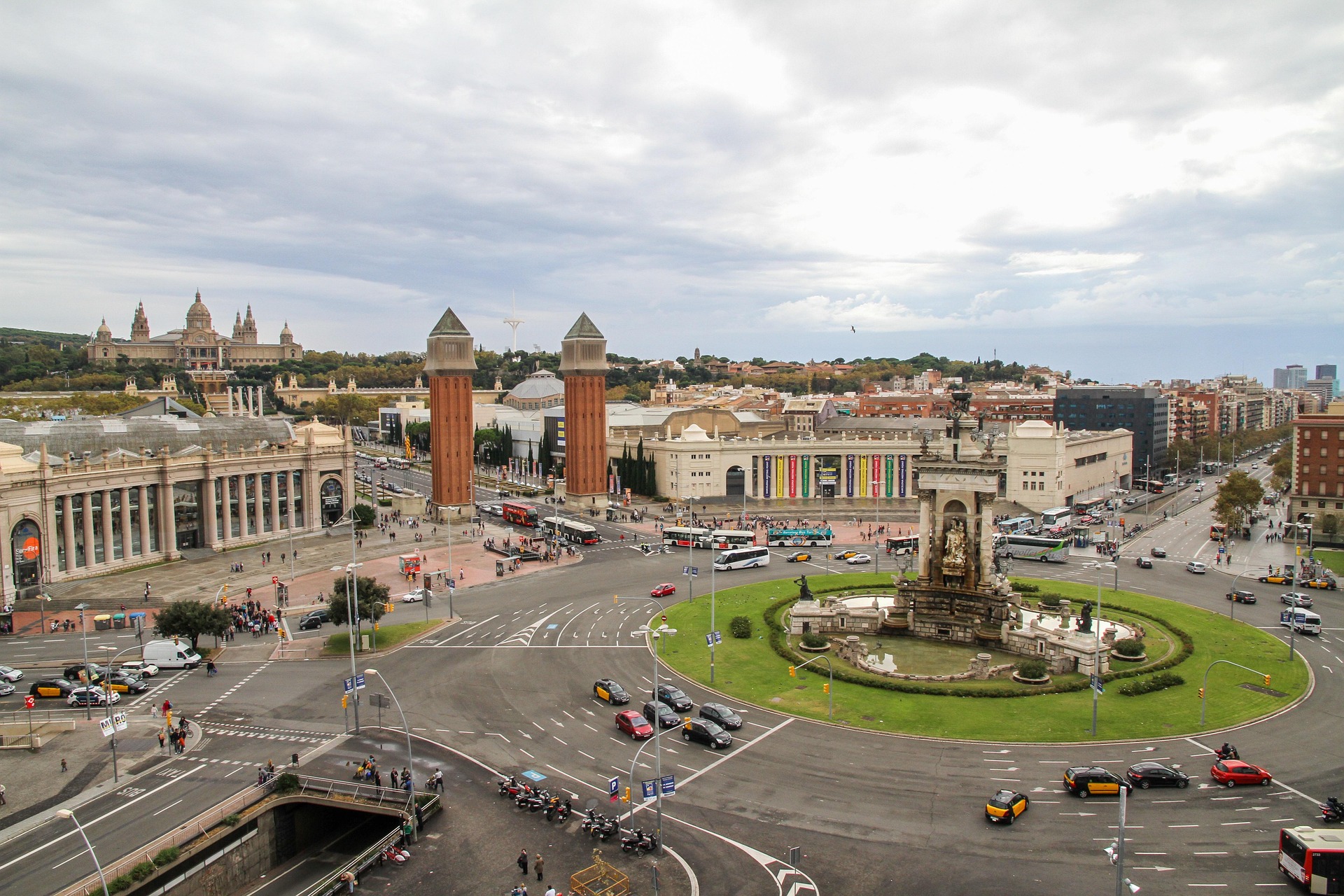Secrets to Study Abroad

Studying abroad offers an incredible opportunity for students to learn about diverse cultures and plenty of new things. It helps you connect with people from different backgrounds, and you can learn various new things from them. However, there are a few things that many people don’t know about when studying abroad.
Not knowing these things makes it difficult for them to survive in any country. Consequently, these students either return to their home county or cannot make the most out of their program. So, to help you out, we will tell you some secrets that you need to know before you come to study in Spain.
Since Spain is one of the most popular destinations in the world for international students, you need to know the secrets to study there. These secrets will help you settle in the new country and ensure you can make the most out of your study abroad programs.
Tips to Study Abroad
Moving abroad for studies is never an easy task, but with these tips, you can settle in and focus on your education. It will make things easy for you when you arrive in another country.
1. Do Things on Your Own
As an international student, you have come a long way from home, and there are new opportunities for you to explore. But before that, you need to start by doing day-to-day chores, such as cleaning, cooking, washing, etc. Though these might not sound too hectic, international students can sometimes struggle with these tasks. So, you first need to learn to do things independently, which will save you from having a rough time when there is no family member to help you out with these tasks.
2. Learn the Local Language
Anyone who wants to study abroad in Barcelona should learn the local language to communicate with different people easily. While English is the most popular language in the world, Spanish is also the fourth most popular language, as per Statista.
Therefore, it would help you connect with the locals and help when traveling to Spanish-speaking countries. Most importantly, knowing the local language can help you attract the employer’s attention. There is a better chance for you to land a job after your education is complete if you know the local language.
3. Make New Friends
Learning a new language can also help you make new friends much faster. Going to a foreign country is a big step for many people, and you always need a friend by your side to make you feel more comfortable. If you learn the local language, you can make friends more easily.
Even if you don’t know the local language, you should not hesitate when meeting new people and making friends. The best way to meet new people and connect with others is by attending orientation week. You can meet with your peers at the university and learn about the local culture to blend in with them.
4. Avoid Spending Too Much
Living in a foreign land means you don’t have too much money to spend on having fun. Overspending on useless things or dining out can impact your finances negatively. Therefore, you should avoid going out too much, which can help you spend less when you have limited finances.
While it is not ideal to completely cut off from your friends and not go to any parties or clubs, you should budget for it. By putting aside money for your leisurely activities, you can enjoy spending time with your friends while responsibly spending money.
5. Cook and Eat Healthy Food
Many international students tend to make the mistake of eating from restaurants outside instead of cooking something at home. Since they find it challenging to cook for themselves, they tend to choose a convenient way of eating in restaurants. Consequently, it impacts their finances and health negatively.
So, maintaining a healthy lifestyle is vital when studying abroad. Though there is no harm in trying out the local cuisine or going to famous local food chains from time to time, You shouldn’t rely on it. Here are some things that can help you stay healthy when you go to study abroad in Madrid:
- Avoid junk food
- Drink lots of water
- Eat healthy food
- Exercise regularly
- Measure your alcohol intake
- Sleep well
- Stay off hard drugs
- Focus on Your Education
You have gone abroad to study and access top-class education. It will help if you try to make the most out of this opportunity by learning new things and studying harder. Visit the library regularly and try to socialise with like-minded people by becoming a part of their study group.
Joining study groups assists you in getting tips for your exams or assignments. You can use these tips to score good numbers on quizzes and tests. Also, taking part in extra-curricular activities is vital to learning new things, and these activities will help you explore opportunities beyond academic life.
6. Study in Spain with the Help of These Secrets
The rise in globalization is driving many students to pursue their academic careers aboard. Therefore, they seek opportunities to travel to popular destinations, such as Spain, to experience new things. With the help of these tips, you can adjust to the new country and focus on your studies.
Before you move out, you should learn more about the country you are moving to, its culture, and the people there. After you understand the foreign country’s rules, you can have an easier time adjusting to your new environment before you start your academic journey there.
Reference Links:
https://abroadgurus.com/what-is-study-abroad/
https://www.goabroad.com/articles/scholarships-abroad/study-abroad-scholarships-complete-guide
https://www.empoweryouth.com/blog/7-secrets-to-know-before-planning-to-study-abroad
https://blog.uceap.universityofcalifornia.edu/secrets-study-abroad-broke/
I spent a fall semester in Valencia
Finding the Valencia program was fate. I still feel like it's a rare, undiscovered secret that only I was privileged enough to explore and call home. It fulfilled a combination of desires for me. I knew I wanted to learn Spanish, and had boiled it down to Spain because unlike South or Central America, I'd have access to traveling throughout Europe and North Africa.
From there, I realized I wanted a city of a decent size. Madrid and Barcelona were the other two Spanish cities for which programs were offered. I'd been to Madrid and enjoyed it very much, but I didn't like that it was so far inland. I heard Barcelona was amazing, but its main language was Catalan.

Then I came across Valencia, Spain's third largest city, located east on the Mediterranean coast. With about 800,000 people, it was an ideal size for being able to experience that large metropolitan vibe while still being able to run into familiar neighborhood faces. Valencia is also the birthplace of paella, and boasted some of Spain's best cuisine (in my humble opinion)
I knew I wanted to learn Spanish
The littoral outlet for well-heeled Deià, a village that has been home to Mick Jagger, Andrew Lloyd Webber, Richard Branson and poet Robert Graves who is buried there, Cala Deià may be small (200m wide), far from sandy beaches but the water is crystal clear, the rocky outcrops imposing and the atmosphere convivial.
A mixture between the fresh caught seafood from the adjacent sea and the best rice dishes, as well as the sweet delectables like buñuelos and the sugary almond treat turron.
But dessert for me tended to be fruit, as I took advantage of the region's incredible bounty (the Valencia orange being one of the most delicious fruits I've ever had -- that perfect balance between sweetness and citrus acidity).
My plans for the near future
As of now, I am set to graduate in June from CUNY Hunter College with a bachelor's degree in Media Studies. I've already made plans, while not yet fully developed, to take some time off after undergrad and return to Spain.
I am going to try and find a job or internship somewhere in the vast field of media. My mind's run agog with possibilities: finding a job or internship, teaching English, or even enrolling in a Spanish university for graduate school. In a perfect world, I would be a foreign correspondent based in Madrid for The New York Times. favourite beach, Cala Deià, can be found here, one of the most bewitching inlets on Mallorca’s entire coastline with the clientele to match.

.webp)


















.webp)





